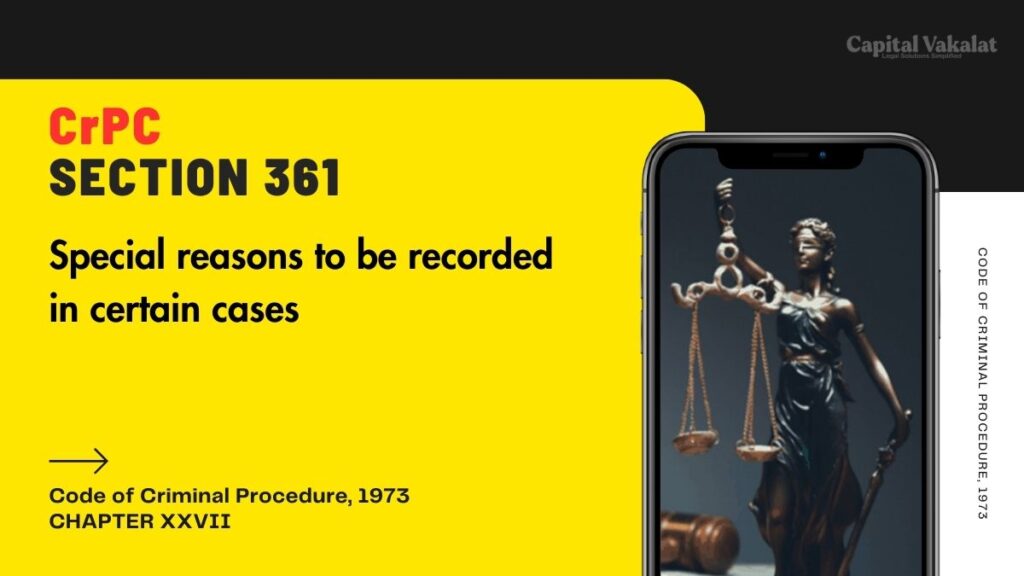In the intricate world of legal proceedings, the Criminal Procedure Code (CrPC) of India serves as a vital framework ensuring justice and order. Among its various sections, Section 361 CrPC stands out due to its unique requirement for recording special reasons in certain cases. This article delves deep into the essence, application, and significance of this section, providing a comprehensive understanding of its role in the Indian judicial system.

Section 361 of the Criminal Procedure Code (CrPC) mandates the recording of special reasons by the judiciary in specific circumstances. This requirement ensures transparency and accountability in legal judgments, particularly when deviating from prescribed norms or guidelines. Understanding the nuances of this section is crucial for legal professionals, scholars, and anyone interested in the judicial process.
The Importance of Section 361 CrPC
Section 361 CrPC emphasizes the necessity for judges to provide detailed justifications when opting for alternative sentences or when choosing not to apply specific provisions. This ensures that every decision is well-founded, mitigating the risk of arbitrary rulings. It promotes a higher degree of judicial accountability and fairness, reinforcing public trust in the legal system.
Application in Sentencing
The application of Section 361 CrPC is particularly significant in sentencing. When a judge decides not to impose a minimum sentence prescribed by law, they must record special reasons for such a deviation. This is vital in cases involving young offenders, first-time offenders, or those showing genuine remorse, where a lenient approach might be more beneficial for rehabilitation rather than strict punishment.
Ensuring Fairness and Justice
By mandating the recording of special reasons, Section 361 CrPC ensures that the principles of fairness and justice are upheld. It requires judges to consider the unique circumstances of each case, ensuring that the punishment fits not just the crime, but also the individual circumstances of the offender. This holistic approach fosters a more humane and just legal system.
Legal Precedents and Interpretations
Several landmark judgments have highlighted the application of Section 361 CrPC. For instance, the Supreme Court of India has reiterated the importance of this section in various cases, emphasizing that special reasons must be clear, cogent, and based on substantial evidence. These interpretations provide valuable insights into the judicial application of this provision, offering a guide for future cases.
Challenges and Criticisms
Despite its significance, Section 361 CrPC is not without challenges. Critics argue that the subjective nature of ‘special reasons’ can lead to inconsistencies in judicial decisions. Additionally, the requirement to record reasons can be seen as an administrative burden on the judiciary. However, these criticisms underscore the need for continued dialogue and refinement of this provision to balance accountability with judicial efficiency.
Practical Implications for Legal Practitioners
For legal practitioners, understanding Section 361 CrPC is essential for effective advocacy. When arguing for alternative sentencing or leniency, presenting compelling special reasons supported by evidence is crucial. This not only aids in achieving favorable outcomes but also ensures that the judicial process remains transparent and just.
Conclusion
Section 361 CrPC plays a pivotal role in the Indian legal system by ensuring that deviations from prescribed legal norms are well-justified and transparent. Its emphasis on recording special reasons fosters accountability, fairness, and justice, reinforcing the credibility of judicial decisions. As legal practitioners and scholars continue to navigate its complexities, the principles underpinning this section remain central to the pursuit of a just and equitable legal system.